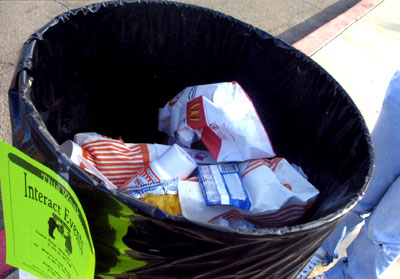All Nonfiction
- Bullying
- Books
- Academic
- Author Interviews
- Celebrity interviews
- College Articles
- College Essays
- Educator of the Year
- Heroes
- Interviews
- Memoir
- Personal Experience
- Sports
- Travel & Culture
All Opinions
- Bullying
- Current Events / Politics
- Discrimination
- Drugs / Alcohol / Smoking
- Entertainment / Celebrities
- Environment
- Love / Relationships
- Movies / Music / TV
- Pop Culture / Trends
- School / College
- Social Issues / Civics
- Spirituality / Religion
- Sports / Hobbies
All Hot Topics
- Bullying
- Community Service
- Environment
- Health
- Letters to the Editor
- Pride & Prejudice
- What Matters
- Back
Summer Guide
- Program Links
- Program Reviews
- Back
College Guide
- College Links
- College Reviews
- College Essays
- College Articles
- Back
Real Miscommunication
“That hat is really neat.” Is our world so diverse as to force us to differentiate between what is neat and “really neat?” Was the word “neat” not neat enough to delineate the speaker’s true feelings? Do they think we lack faith in the validity of their statement? Under such presumptions, is it completely unfounded for us to assume the speaker has trust issues and should be put under close examination and referred to an institution? In order to eliminate such confusion, English speakers must throw a metaphorical meteor on the world of “really.”
The word “really” is generally utilized in common speech to emphasize the truth of a statement. Why speakers insist that they automatically assume that the listener will not consider their statement to be truthful without the use of such an adjective (if one can even call it such), is baffling. What is this world coming to when common man can no longer trust even his closes acquaintances? Humans in intimate relationships will use this word to describe feelings and events, even though they trust one another with their most personal secrets. Of course, we don’t really mean by saying this word that we do not trust, so why do we lie to the ones we love dearly by unknowingly emphasizing the truth?
Is our vocabulary truly declining at such a rapid rate that we must substitute more percise diction for a word that is a lie? If so, what other words will this replace? Thanks to 80s pop-culture, the word “like” has stolen the facade of many beautiful words, much like Hannibal Lector did to his innocent victims, but the lambs will not stay silent forever! We can’t allow such a menace to ravage the minds of future generations, our retirement rests in their hands! The solution? Drugs. This is obviously a psychological disease. Just like with ADHD, the brain chemicals are obviously unbalanced causing lack of blood flow to vital functions of the frontal cortex. And if that doesn’t work, it would at least make our world more interesting, eliminating the need to find fault in modern communication. Or we could just invest in real dictionaries, but who would think of that, I mean really?

Similar Articles
JOIN THE DISCUSSION
This article has 0 comments.